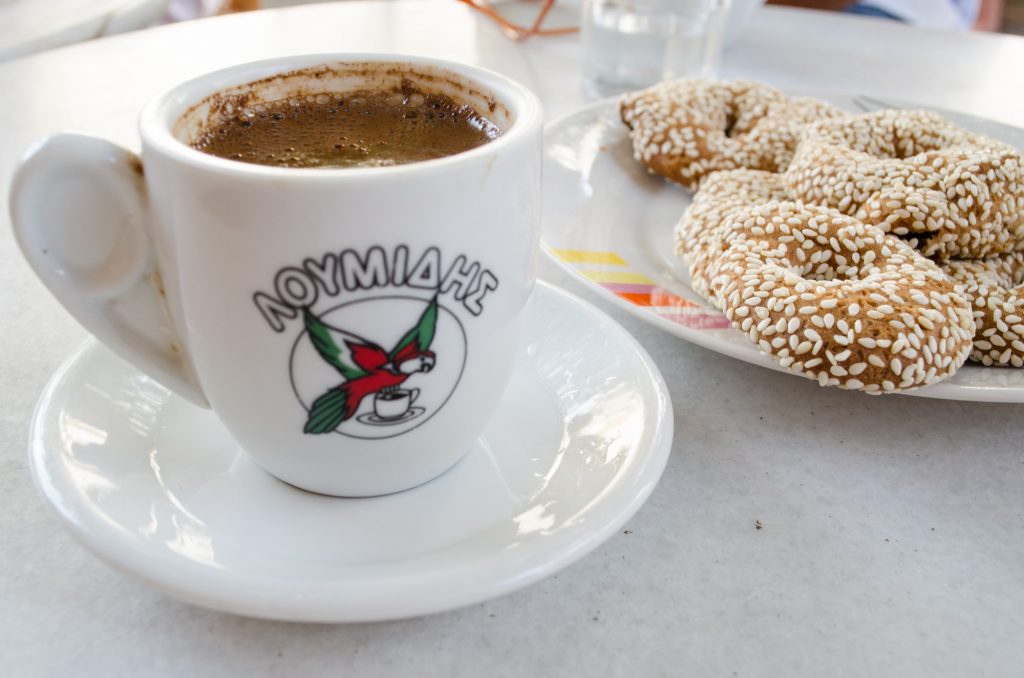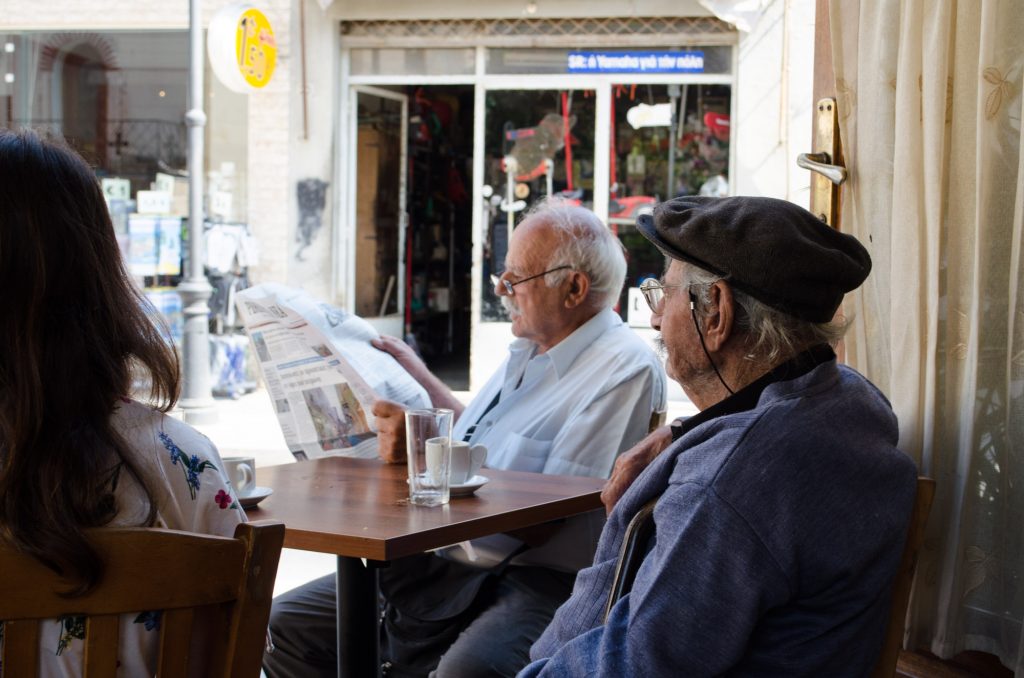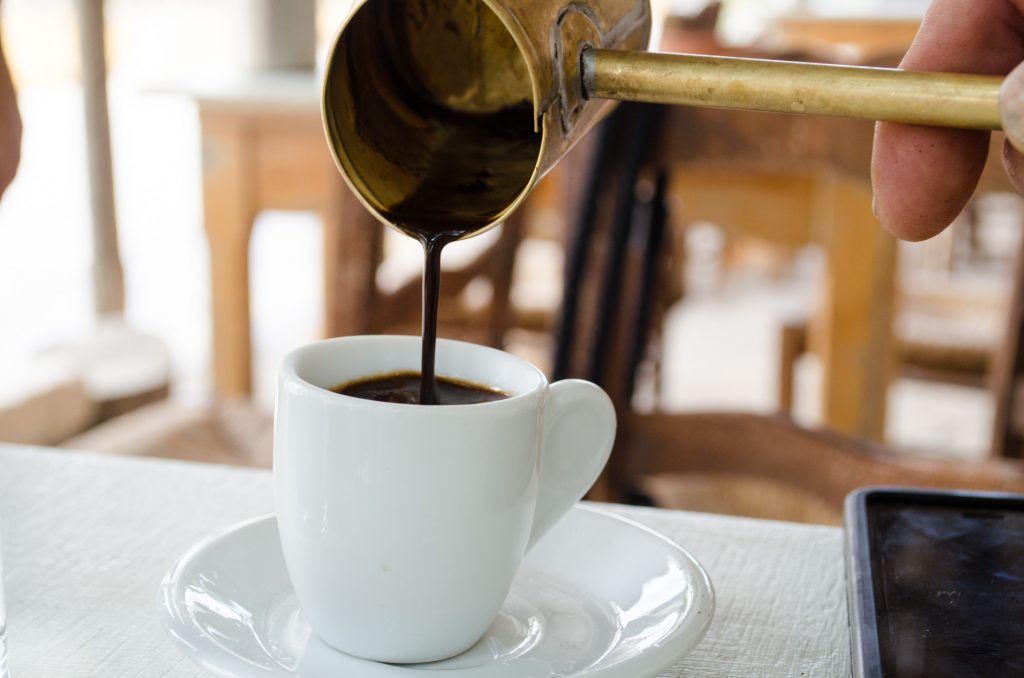Anatolian coffee takes center stage in Greece and the regions surrounding Greece as a significant part of food culture and life.
Anatolian Coffee
When the Ottoman Empire swept through eastern Europe, the Balkans and Asia Minor, coffee played an important role. The warm, unfiltered and fragrant drink became a part of betrothal and hospitality customs.
In this part of the world where hospitality is extremely revered, Anatolian coffee takes on a key role – made and served with care.
History of Anatolian Coffee
Famously known today as either Greek coffee or Turkish coffee, Anatolian coffee was said to have been invented in the Middle East in the 15th century. By the mid-16th century, Anatolian coffee made its debut in Istanbul and spread like wildfire throughout the empire. A century later it was a significant food formality in the Ottoman court where kahveci usta (coffee makers) – and their dozens of assistants -would serve it up special for the sultan. Harems would also learn the art of preparing a perfect brew. Women who made an excellent cup were said to have a big advantage when trying to find a husband.
Besides Turkey and Greece, the countries of Cyprus, Armenia, Croatia, F.Y.R.O.M, Serbia, Iran, Azerbaijan, Russia and many Arabic countries serve a type of Anatolian coffee. Anatolian coffee is certainly served with much less formality than in the past yet it remains at the core of societal interaction. It is served over a game of backgammon, over neighborly conversation and between friends. Cafes are the preferred relax meeting place for all types of people.
Preparing Anatolian Coffee
Anatolian coffee begins with Arabica beans, crushed into a fine powder. Sugar is always added during the heating process so when ordering one must specify just how much sweetness is desired. For example, with traditional Greek coffee, the most common variants are sketos (without sugar), metrios (with one teaspoon of sugar), glikos (sweet, with two teaspoons of sugar) and variglykos (very sweet). A similarity with all types of Anatolian coffee is the fact it is boiled in a small copper or metal coffee pot called a cezve in Turkish or briki in Greek. When the coffee heats, it begins to foam.
Besides choosing sweetness, there are other variations that vary by country or region. Sometimes, it can be flavored by spices like cardamom or it can be boiled several times instead of just once. There’s a custom that if a Turkish coffee doesn’t have foam, the host loses face.
Always, an Anatolian coffee is properly served in small round demitasse cups. The small size of the cup doesn’t mean it should be consumed quickly. Quite the opposite! Anatolian coffee is best enjoyed slowly and lasts throughout a good conversation. The grounds that pile up at the bottom are not to be eaten. In Greece, Greek coffee can be served with a small cookie or a piece of loukoumi, a powdered jelly sweet also known as a Turkish Delight.
Anatolian Coffee Tassography
While Anatolian coffee is the choice caffeine break for so many, there’s much more to what this pick me up can offer. This thick coffee leaves a muddy sediment at the bottom of the cup and by swirling the cup and flipping it upside down, some people claim to “read” fortunes in the coffee residue and patterns in the cup.
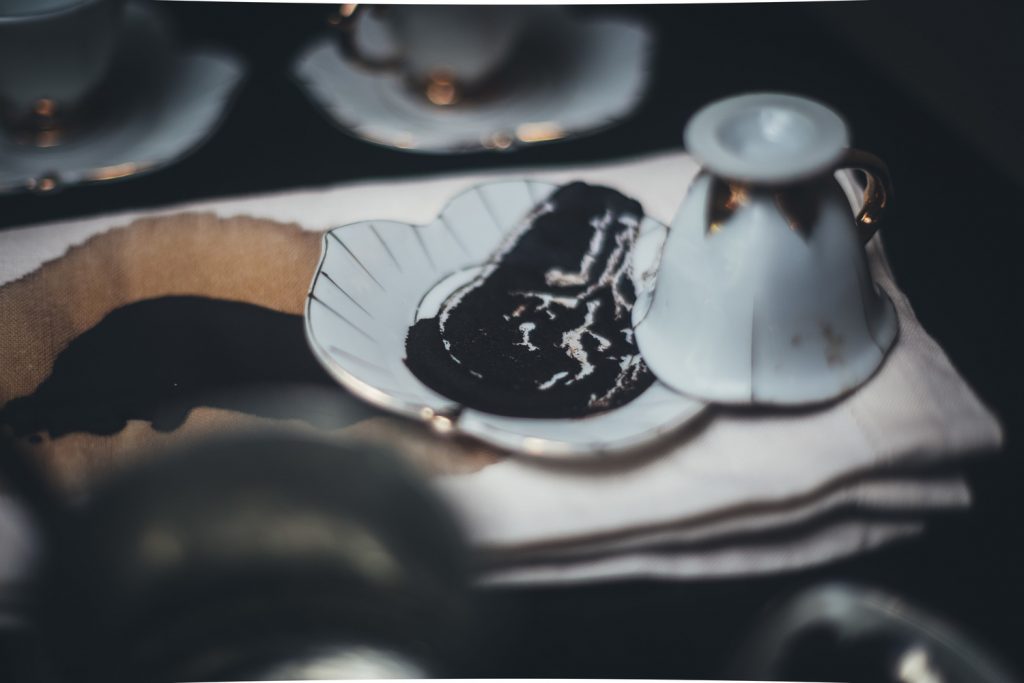
This kind of fortune telling by examining the residue left from coffee or tea is known as tassography. Believers say the shapes created by grinds or tea leaves help predict the future. Each culture claims its own rituals and traditions. Some rules include:
- Never interpret your own cup.
- Fortune telling starts from the cup’s handle.
- Animals, nature and letters can be found in the shapes.
- Shapes that are big and close to the top of the cup represent a big event will be happening soon.
- A triangle shape means change is coming to your life.
As you can see, Anatolian coffee is truly a special cup of coffee to have. When in Greece, order a Greek coffee for the food and culture experience.
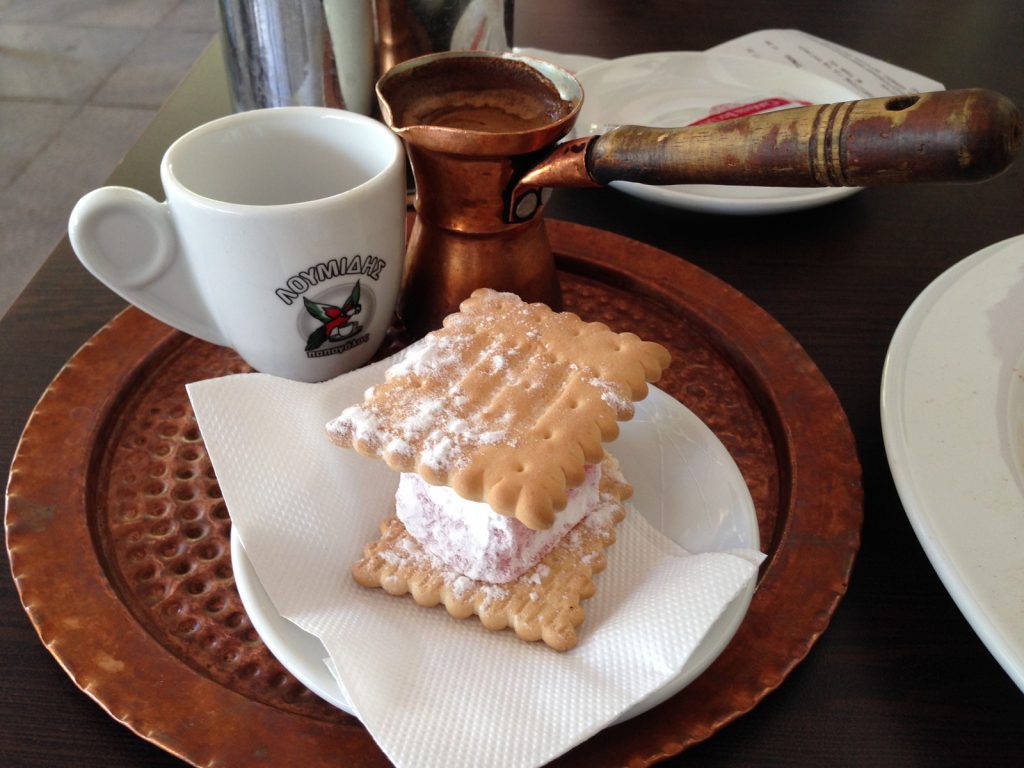
Did you know a little cup of coffee could do so much? Would you like to have your fortune told from your coffee cup?


